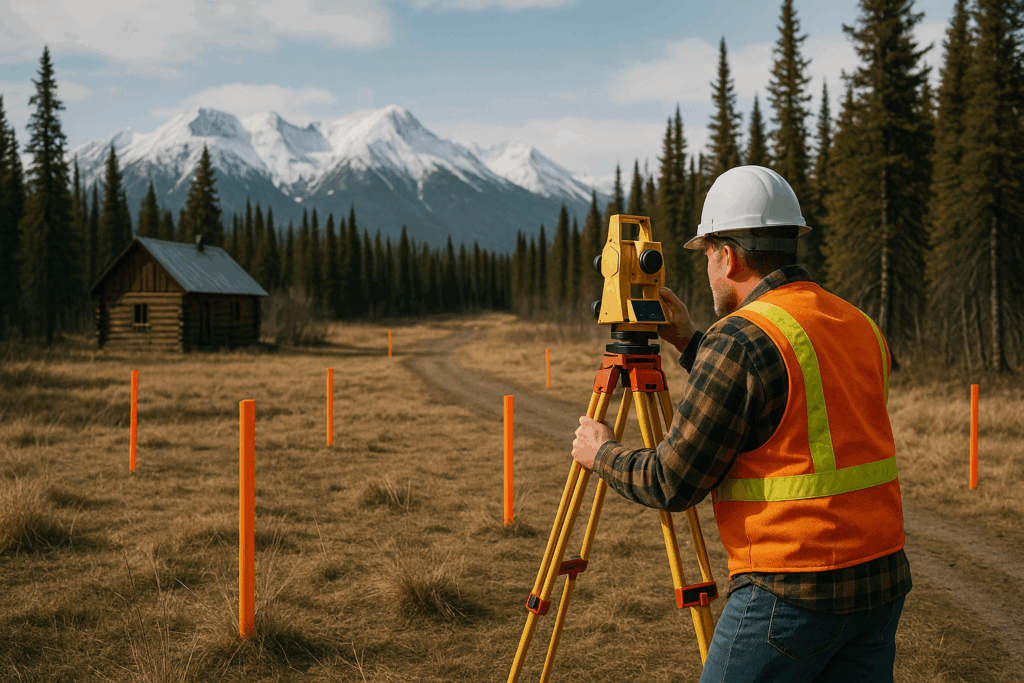By Marc Aaron Smith, Esq., Associate Attorney, Delta Junction Office
A Real-World Reminder
In 2023, the Alaska Railroad Corporation (ARRC) prevailed in a federal quiet title case to confirm its easement rights through a subdivision in Anchorage. Homeowners argued that ARRC’s right-of-way was ambiguous, but the Ninth Circuit upheld ARRC’s easement, illustrating how old deeds and unclear records can create modern-day disputes.[1] Even more striking, the State of Alaska, itself, has brought quiet title suits to secure ownership of riverbeds, arguing with the federal government over submerged lands.[2] These cases show that even governments must resolve clouds on title — and for private landowners in rural Alaska, the stakes are no less critical.
What Is a Quiet Title Action?
A quiet title action is a lawsuit to “quiet” any challenges or claims against a property title. Alaska law recognizes quiet title suits under AS 09.45.010 – .020, permitting a person in possession of land to seek a judicial declaration of ownership. Once the court resolves the dispute, the winning party may obtain a Clerk’s Deed, clearing the record.[3]
Why It Matters in Rural Alaska
Many rural properties trace their history back to homesteads, mining claims, or informal transfers. This creates several common problems:
- Ambiguous or missing deeds – especially where property changed hands outside of formal probate.
- Boundary disputes – unclear surveys or encroachments across property lines.
- Access and easements – many cabins and farms rely on trails or private roads that lack written easements.
- Competing state or federal claims – especially along navigable waters or resource-rich areas.
In Delta Junction, North Pole, and across Interior Alaska, unclear ownership can make land impossible to sell or get a loan, and vulnerable to disputes.
How a Quiet Title Action Works
- Title search & Survey – Locate all deeds, plats, and chains of ownership related to the property. A new survey may be required.
- Filing the complaint – A quiet title complaint is filed in Alaska Superior Court, naming all parties who might claim an interest.
- Notice & Service – Potential claimants, including the State of Alaska, must be notified.
- Court decision – If uncontested, judgment may be quick; if contested, the court resolves the dispute.
- Recording – A Clerk’s Deed or final judgment is recorded, providing marketable title.
Why Landowners Should Act
Delaying resolution can lead to:
- Sales falling through when title insurance companies refuse to provide coverage.
- Neighbor disputes escalating into costly litigation.
- Loss of land value, if uncertainty lingers.
Polaris Law Group, P.C., advises landowners to resolve ownership issues early, especially in rural Alaska where boundaries and rights-of-way are often poorly documented.
[1] Alaska R.R. Corp. v. Flying Crown Subdivision Addition No. 1 & No. 2 Prop. Owners Ass’n, 82 F.4th 762 (9th Cir. 2023).
[2] “State of Alaska sues federal government over river ownership,” Alaska’s News Source (Nov. 2018).
[3] Alaska Department of Natural Resources, Quiet Title Actions Factsheet (2022).

